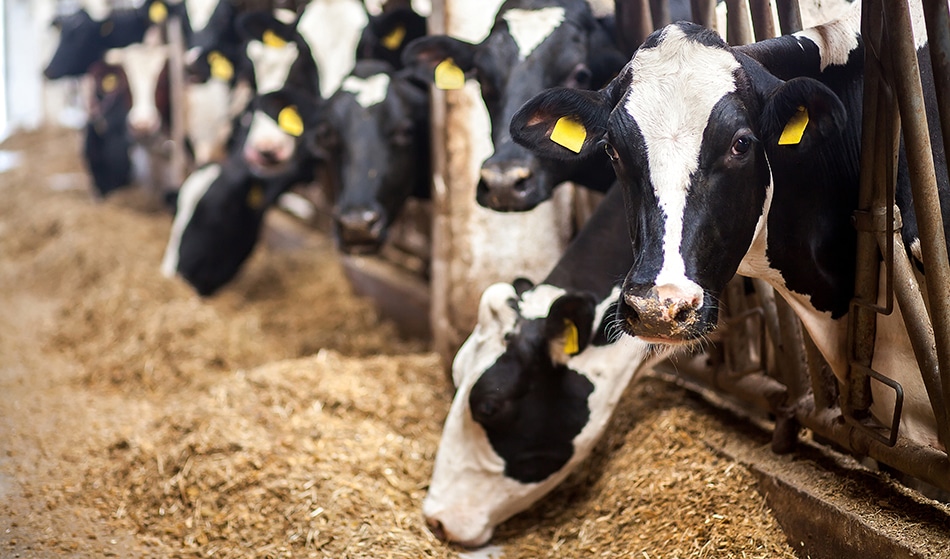Codex Standards Pathogen Limits in Agricultural Products
The Codex Alimentarius Commission, established by the World Health Organization (WHO) and the Food and Agriculture Organization of the United Nations (FAO), sets international food standards that are designed to ensure food safety and quality. One critical area where these standards play a pivotal role is in setting pathogen limits for agricultural products intended for human consumption. This ensures that food products do not pose any health risks due to contamination from harmful microorganisms such as Salmonella, Listeria monocytogenes, or Escherichia coli.
The Codex standards are binding only on member states, but they serve as a reference for many countries and international trade. Compliance with these standards is essential for manufacturers, importers, and exporters to ensure product safety and maintain market access. For agricultural products like grains, legumes, dairy, meat, and animal feed, the presence of pathogens can lead to significant recalls or even bans on exports if limits are exceeded.
The testing process involves multiple steps that include sample collection, preparation, inoculation with known amounts of pathogens, incubation periods, and finally, identification and quantification using advanced microbiological methods. The standards specify acceptable levels of contamination for each agricultural product depending upon its intended use. For instance, raw meat may have different allowed limits compared to processed meats or dairy products.
Compliance testing must be conducted in accordance with internationally recognized guidelines such as ISO 17025 for proficiency and quality assurance. Laboratories specializing in this area often utilize techniques like PCR (Polymerase Chain Reaction) and ELISA (Enzyme-Linked Immunosorbent Assay), alongside traditional culture-based methods, to achieve accurate results.
Given the stringent nature of these standards, it is crucial for businesses involved in agricultural product production or trade to stay up-to-date with any updates or changes made by Codex. Non-compliance can lead to severe financial losses due to recalls, fines, and damage to brand reputation. Therefore, regular internal audits and third-party verifications are highly recommended.
Additionally, understanding the nuances of these standards helps in developing safer products that meet consumer expectations and regulatory requirements worldwide. By adhering strictly to Codex guidelines, companies can ensure their agricultural products remain safe and fit for consumption under various conditions.
- Accurate Identification: Advanced diagnostic tools like mass spectrometry enable precise identification of pathogens down to the strain level.
- Quantitative Analysis: Techniques such as quantitative PCR provide highly sensitive detection capabilities, allowing for accurate quantification even at low concentrations.
- Compliance Monitoring: Regular testing ensures continuous monitoring and early detection of potential issues before they escalate into major crises.
In summary, Codex standards for pathogen limits in agricultural products are vital tools that promote global food safety. By leveraging these standards effectively through rigorous testing protocols and robust compliance measures, stakeholders can mitigate risks associated with microbial contamination while also enhancing consumer trust and satisfaction.
Industry Applications
The application of Codex standards in agricultural products extends beyond mere compliance; it serves as a cornerstone for ensuring product quality and safety. Quality managers responsible for maintaining high standards within their organizations can benefit greatly from incorporating these guidelines into their practices. Here are some key areas where implementing Codex-compliant testing procedures proves beneficial:
- Supply Chain Management: Ensures that all suppliers adhere to the same rigorous standards, thus minimizing variability in product quality.
- R&D Innovation: Encourages innovation by providing a benchmark against which new products can be evaluated for safety and efficacy.
- Consumer Confidence: Builds trust among consumers who demand safe food products free from harmful contaminants.
- Regulatory Compliance: Helps in avoiding penalties associated with non-compliance while ensuring smooth international trade transactions.
R&D engineers working on developing novel agricultural products can also leverage Codex standards to guide their research and development efforts. This ensures that innovations are not only cutting-edge but also safe for consumers. Similarly, procurement teams can use these standards as a basis for selecting reliable suppliers who meet the required quality criteria.
For compliance officers overseeing company policies related to food safety and quality, Codex standards offer valuable guidance on how best to structure internal controls and external audits. These practices help identify potential risks early on and take corrective actions promptly when necessary.
In essence, integrating Codex standards into daily operations contributes significantly towards maintaining a robust supply chain that delivers consistently high-quality agricultural products meeting both local and international regulatory expectations.
Eurolab Advantages
At Eurolab, we pride ourselves on providing comprehensive services tailored specifically to meet the stringent requirements set forth by Codex standards. Our team of experts brings together decades of collective experience in agricultural product testing and microbiology, ensuring that our clients receive accurate, reliable results every time.
Our state-of-the-art facilities are equipped with cutting-edge instrumentation capable of performing precise analyses required for pathogen detection and quantification according to Codex specifications. From sample preparation right through to final report generation, we employ best practices recommended by relevant international standards like ISO 17025.
One major advantage of working with Eurolab lies in our ability to offer rapid turnaround times without compromising on accuracy or completeness. We understand that timely results are crucial for decision-making processes related to product safety and quality assurance. Our streamlined workflow ensures quick access to essential information needed by various stakeholders involved in the agricultural sector.
Another significant benefit is our commitment to continuous improvement through ongoing training programs and updates regarding current trends within Codex standards. This allows us to stay ahead of regulatory changes, ensuring that our services remain relevant and effective throughout their lifecycle.
We also provide detailed reports that go beyond simple pass/fail results. Instead, they offer comprehensive insights into the specific pathogens detected along with quantitative data where applicable. Such transparency helps clients better understand potential risks associated with their products while also guiding them towards corrective actions if required.
Finally, Eurolab’s extensive network of contacts within the agricultural industry allows us to stay connected with emerging trends and best practices. This enables us to offer customized solutions that address unique challenges faced by our clients in their respective markets.





